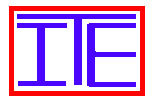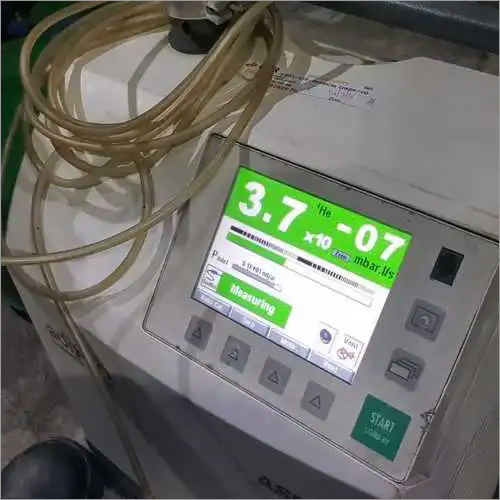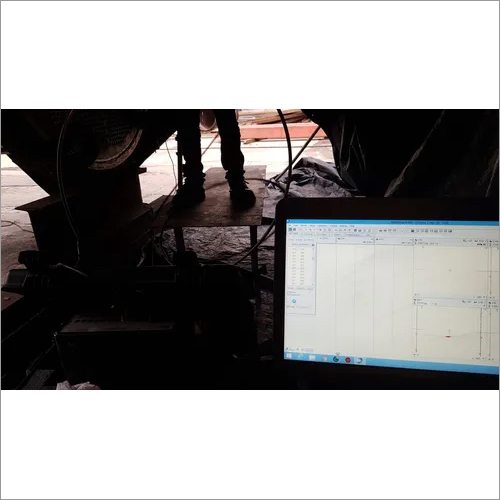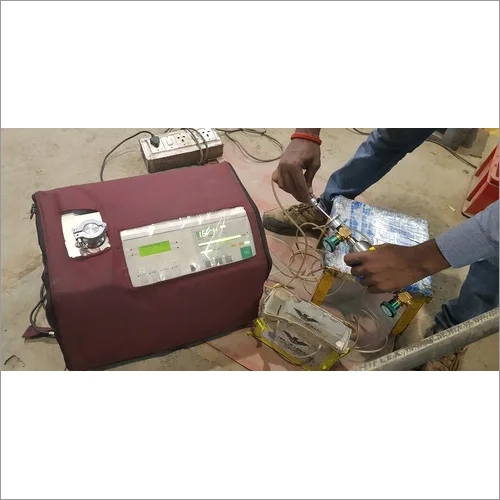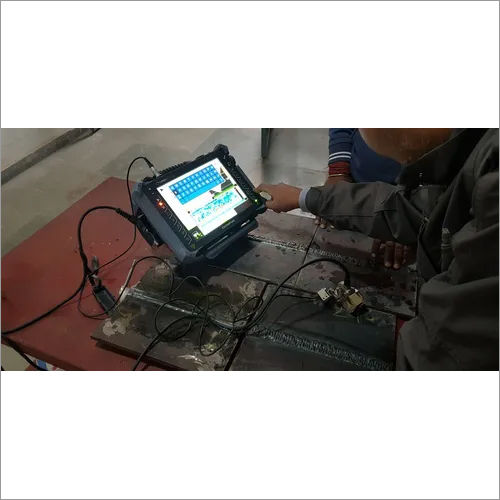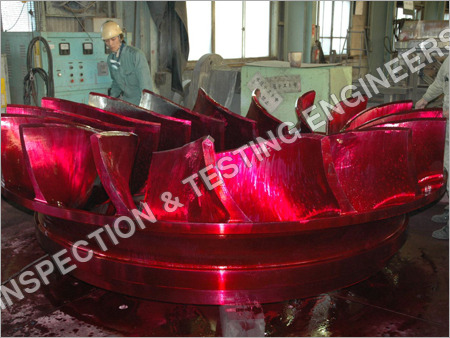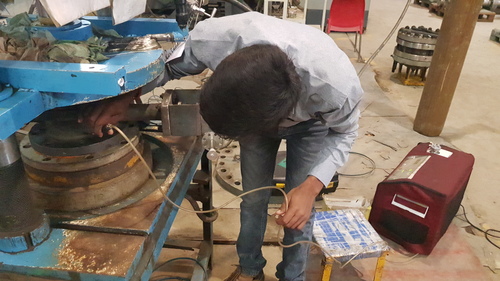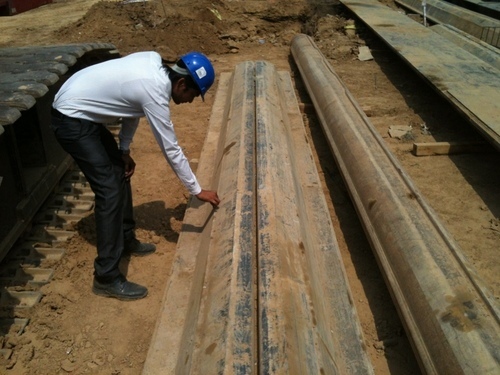Positive Material Identification Testing Services
Positive Material Identification Testing Services Trade Information
- Payment Terms
- Cash on Delivery (COD), Cash Against Delivery (CAD), Cash in Advance (CID), Cheque, Cash Advance (CA)
- Sample Available
- Yes
- Main Export Market(s)
- Middle East, Africa, Asia
- Main Domestic Market
- All India
- Certifications
- ISO, NABL, etc.
About Positive Material Identification Testing Services
POSITIVE MATERIAL IDENTIFICATIONPositive Material Identification (PMI) is one of the more specialized non destructive testing methods. With positive material identification the alloy composition of materials can be determined. If a material certificate is missing or it is not clear what the composition of a material is, then PMI offers the solution. Because specifications for materials used in industry are increasingly more specific, the need for PMI testing has been on an increase for the past several years. Periodic plant maintenance shutdowns are less frequent and consequently the materials used in the plant are in use longer. A wider variety of alloys that are indistinguishable to the eye are being used in process plants. When facility and inspection staff replace components, they must be able to guarantee that the new part matches required specifications. Recent industrial accidents have cost the lives of workers and heightened the awareness of the need for accurate and comprehensive PMI inspections.
The X Ray Fluorescence is one of the very useful methods for PMI. The equipment used in this method contain x-ray tubes or low radioactive sources (isotopes). The material, which is exposed reflects the radiation and generates energy. Each & every element has its own automic structure and this is why, the reflection generates different energy for each element. It is when this energy is measured and recognized, then the alloy elements are identified.
Spark Emission Spectrography is another method for PMI. This method is based on the optical emission. All the same, it is essential that the surface is uniform to the material. Coatings, Dirt and Oxides on the material will affect the identification results. Not only this, the surface should also be very smooth. By using the PMI methods, you can identify the elements like Cr, Mn, Nb, Mo, Co, Fe, Zn, Ni, Ti, V, Cu, Se.
Extra safety measures are not needed because the exposure of radiaiton is sufficiently very low. If you are dealing with preventive maintainence of technical installations and exploitation licenses, then the NDT / NDE (Non Destructive Testing and Examination) are indispensable techniques. These techniques also provides the necessary guarantees when business security, expense saving, quality and business safety is in order for both new and existing installations. Not only this, these techniques also decrease the risk of leakage as well as other defects. This increase the business safety and integrity within the installation and can save expenditure.
In today's times, all the prominent companies require that every flange, valve, pipe, connector and welding seam in critical parts of the plant be evaluated to confirm that materials match the engineering specifications. Apart from the compatibility issues, there are many other reasons that can exist for material specification consisting corrosion resistance, design and adherence to codes as well as standards like Pressure Vessel and ASME Boiler Code. It also finds applications in the below mentioned areas.
Products Application:
- Aerospace Manufacturing Aerospace Castings Aerospace Fastener QA / QC Failure Analysis
- Pharmaceutical Manufacturing Component Validation Installation Qualification (IQ) Operational Qualification (OQ)
- Electric Power Industry Plant Inspection Failure Analysis PMI Incoming Materials In Stock Materials In service Testing
Product details
| Product Certification | For Recycling Process |
| Sample Test Location | Customer Place |
| Resistance Check | Corrosion Resistance |
| Product Type | Metal |
| Industry Type | Refineries |
| Application Type | Hazardous Material Inspection |
Comprehensive PMI Testing Solutions
Our PMI services cater to diverse manufacturing industries, ensuring material reliability and compliance. With flexibility in sample collection and rigorous testing methods (XRF/OES), clients benefit from accurate elemental analysis, vital for quality assurance and process control.
Fast and Reliable Reporting
Clients receive detailed Material Test Reports within 24-48 hours, enabling quick decision-making during procurement or production. Our rapid turnaround and high accuracy help minimize downtime and ensure seamless workflow in critical industrial operations.
FAQs of Positive Material Identification Testing Services:
Q: How is Positive Material Identification testing performed for metals and alloys?
A: PMI testing is conducted using XRF (X-ray Fluorescence) and OES (Optical Emission Spectroscopy) to accurately determine the composition of metals and alloys. Our certified technicians collect samples onsite or in the lab, providing precise results as per ASTM E1476 and API 578 standards.Q: What materials can be analyzed using your PMI services?
A: Our PMI testing services are specifically designed to analyze a wide range of metals and alloys commonly used in manufacturing and industrial processes, verifying material grade and composition to prevent mix-ups or failures.Q: When and how will I receive the test report for PMI testing?
A: A comprehensive Material Test Report will be provided within 24-48 hours after sample collection and analysis. The report details elemental composition and compliance with relevant standards, enabling you to make informed decisions promptly.Q: Where can your PMI testing services be availed in India?
A: We offer PMI testing services at locations all over India. Samples can be collected at your site or shipped to our laboratory, ensuring convenience and accessibility throughout the country.Q: What is the process for scheduling PMI testing for my facility?
A: Simply contact our service team to arrange sample collection either onsite or at our laboratory. We offer both single and batch testing modes, and our 24/7 availability ensures we can accommodate your operational requirements.Q: How does PMI testing benefit manufacturing industries?
A: PMI testing safeguards operational integrity by confirming material specifications, reducing the risk of using incorrect materials, meeting compliance needs, and improving overall production quality and reliability.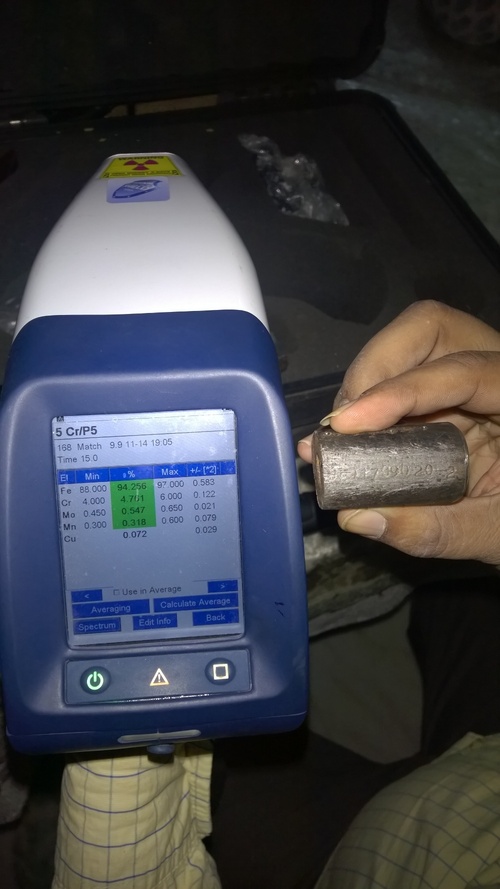
- Main Domestic Market
- All India
- Main Export Market(s)
- Middle East, Africa, Asia

Price:
- 50
- 100
- 200
- 250
- 500
- 1000+
More Products in Related Inspection & Testing Services Category
 |
INSPECTION & TESTING ENGINEERS
All Rights Reserved.(Terms of Use) Developed and Managed by Infocom Network Private Limited. |
 English
English Spanish
Spanish French
French German
German Italian
Italian Chinese (Simplified)
Chinese (Simplified) Japanese
Japanese Korean
Korean Arabic
Arabic Portuguese
Portuguese